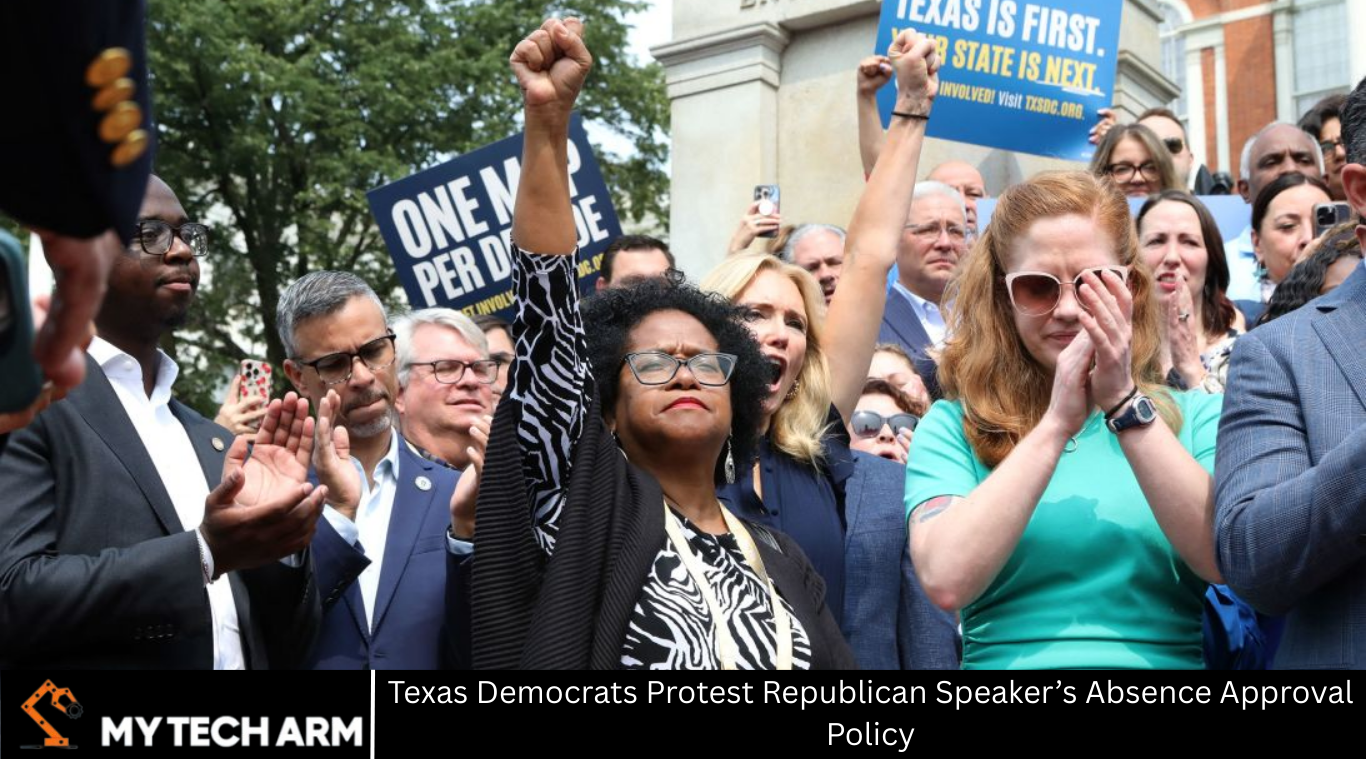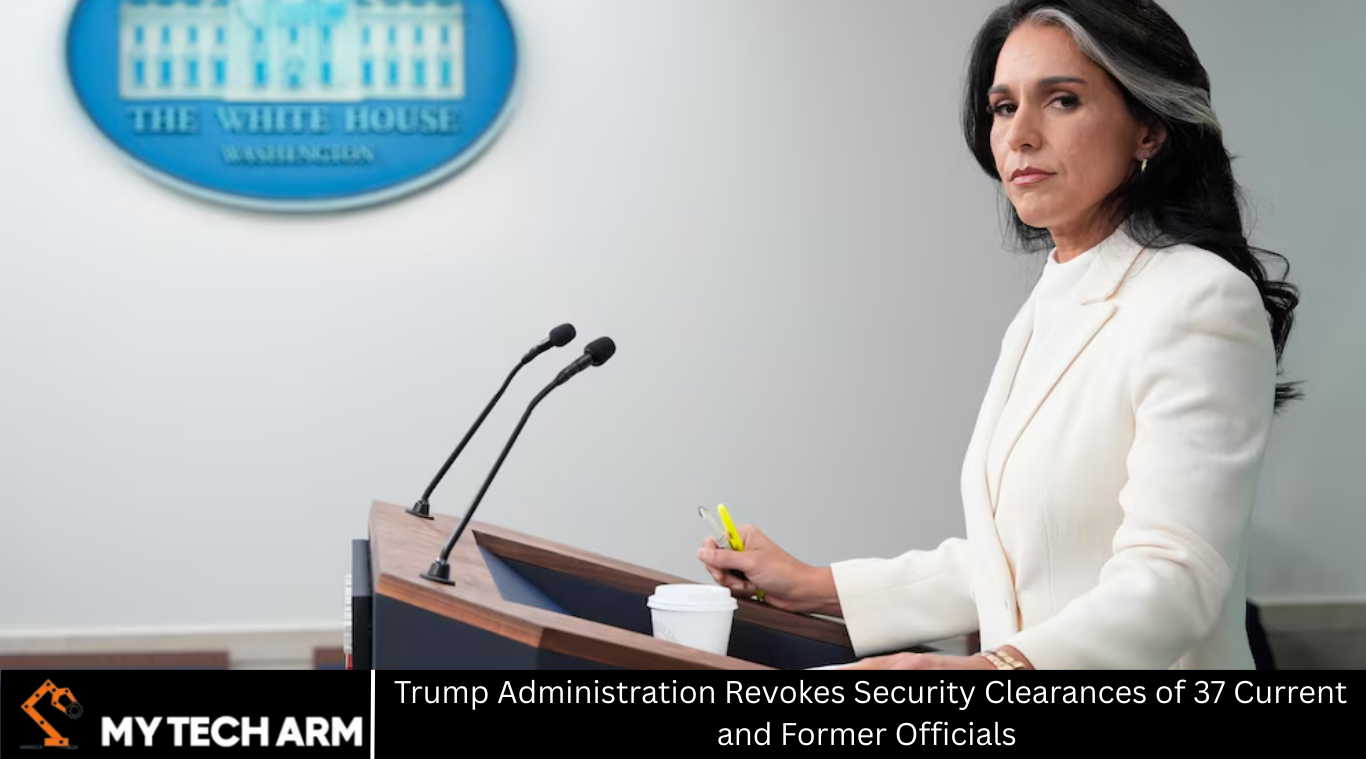The Texas Legislature recently witnessed a dramatic and unprecedented clash between Democratic lawmakers and Republican leadership. The conflict stems from a controversial new policy imposed by Texas House Speaker Dustin Burrows, requiring Democratic legislators to seek formal permission — dubbed “permission slips” — before leaving the House chamber. This policy was instituted in response to a Democratic walkout intended to block a Republican-led redistricting bill that could significantly reshape the state’s political landscape.
The Democratic response was swift and vocal. Lawmakers condemned the policy as authoritarian, humiliating, and unconstitutional. Most notably, Representative Nicole Collier refused to comply with the rule, instead launching a powerful protest by spending the night on the House floor in a move she called a “slumber party for democracy.” This act of defiance became a rallying cry for lawmakers who saw the policy as an abuse of power.
In this article, we explore the context behind the walkout, the controversial attendance policy, the motivations on both sides, and what this episode means for the future of Texas politics.
The Background: What Sparked the Walkout
Tensions in the Texas Legislature had been building for months, but they came to a head with the introduction of a redistricting bill designed to bolster Republican congressional control. The bill would, if passed, redraw voting districts in ways critics said would weaken minority voting power and diminish Democratic representation in the U.S. House of Representatives.
In protest, Texas House Democrats walked out of the Legislature, denying the chamber the quorum required to proceed with the vote. This tactic — used before in Texas history — aimed to halt the redistricting process and buy time for public outcry and potential legal action.
Democrats have used similar strategies in the past, most famously in 2003 and 2021, to protest Republican bills they viewed as extreme or anti-democratic. In those instances, as in this one, lawmakers physically left the state to avoid being compelled by law enforcement to return and participate in votes.
The Speaker’s Response: “Permission Slips” and Surveillance
Upon their return, Speaker Burrows issued a sweeping new policy aimed at deterring future walkouts. Any Democratic lawmaker seeking to leave the House chamber — even for brief personal reasons — would now be required to sign a formal “permission slip.” Additionally, lawmakers who signed would be accompanied by a Department of Public Safety (DPS) officer at all times, effectively placing them under surveillance.
Republican leaders defended the policy as a necessary measure to ensure quorum and uphold the legislative process. They claimed the rule was consistent with longstanding House procedures that permit the Speaker to issue “call of the House” orders when lawmakers are absent without authorization.
However, Democrats saw the move as an unprecedented overreach of authority and a deliberate attempt to intimidate dissenters.
Representative Nicole Collier’s Protest
Representative Nicole Collier of Fort Worth became the face of the resistance to the new policy. Refusing to sign the permission slip or allow police oversight, Collier remained on the House floor — all day and overnight. She brought pillows and blankets and turned her protest into a symbolic “slumber party for democracy.”
Her protest drew national attention and inspired support from colleagues and constituents alike. For Collier, the policy wasn’t just about paperwork or procedure — it was about defending the independence and dignity of elected officials. In her view, being monitored by law enforcement for merely performing her duties was a step too far.
Other Democrats soon joined her in solidarity. The protest moved from symbolic to strategic, as more lawmakers used their public platforms to decry the Speaker’s rules.
Reaction Among Lawmakers
Among Democrats, the reaction was one of outrage and defiance. Many said the policy was punitive, designed to shame and silence those who exercised their constitutional right to protest. They argued that elected officials should not be treated like schoolchildren or criminals.
Republicans, however, remained largely united behind the Speaker’s policy. They accused Democrats of dereliction of duty and claimed that the walkout harmed the democratic process more than the redistricting bill itself. For GOP lawmakers, the permission slip policy was simply a consequence of actions taken by their Democratic colleagues.
The conflict highlighted the deep partisan divide not just over redistricting, but over legislative norms, power dynamics, and democratic participation.
Escalation Beyond the Chamber
Perhaps most controversial was the implementation of DPS surveillance outside the Capitol. Some Democrats reported being followed by police into grocery stores, meetings, and even their homes. Though framed as enforcement of quorum-related rules, many lawmakers felt it amounted to political harassment.
Civil liberties groups raised alarms about the use of law enforcement for political ends. Critics argued that such practices blurred the line between procedural enforcement and political intimidation.
The psychological and emotional toll on lawmakers was significant. Some reported feeling unsafe, not because of protesters or the public — but because of the constant presence of officers assigned to monitor them.
Legislative Fallout and Passage of the Redistricting Bill
While the protest succeeded in delaying the redistricting vote, it ultimately failed to stop the bill. Once enough Democrats returned to the chamber to restore quorum, Republicans swiftly passed the legislation along party lines.
The bill’s passage sets the stage for legal challenges and public opposition, but the Republican victory within the chamber was clear. Additionally, the Speaker signaled he would continue using disciplinary measures — including fines, limitations on committee assignments, and surveillance — to punish future walkouts or absenteeism.
Democrats vowed to continue fighting, not only against the map but against what they described as authoritarian behavior within the Legislature itself.
Legal and Political Implications
This confrontation could have lasting implications for Texas politics and beyond.
Legal Implications:
- The use of DPS officers to monitor lawmakers may raise constitutional questions about the separation of powers and due process.
- Lawsuits challenging the redistricting map are likely to argue racial or partisan gerrymandering.
Political Implications:
- Democrats may use the incident to galvanize voter turnout, especially among minority and urban communities most affected by redistricting.
- Republicans may face internal debates about the optics and long-term effects of harsh procedural enforcement.
The story has also energized activists on both sides, setting the stage for contentious elections and further polarization.
Public and National Response
The protests and permission slip policy attracted widespread media attention. Across the country, elected officials, civil rights organizations, and voters weighed in.
Many expressed concern that the episode symbolized a broader national trend — where legislative majorities use procedural power to silence dissenting voices. Others applauded the Speaker for maintaining control of the chamber and ensuring that legislative work could continue.
Public opinion remains sharply divided, much like the state itself.
Historical Parallels
The Texas Democratic walkout is not a new tactic. In 2003, a group of lawmakers dubbed the “Killer Ds” fled the state to protest another Republican redistricting plan. In 2021, Democrats again left the state to block voting restriction bills.
What makes this most recent event different is the Speaker’s use of ongoing surveillance and formal paperwork to control member movement. While past walkouts triggered legal responses, they did not result in the kinds of physical oversight now being imposed.
This evolution suggests an increasingly aggressive stance toward legislative protest, and perhaps a new chapter in the state’s political history.
Where It Goes From Here
The confrontation in the Texas House is far from over. While the redistricting map has passed, the anger and distrust between parties have deepened.
Democrats are preparing legal challenges, while Republicans are drafting new rules to further penalize walkouts. The fallout from this standoff will likely influence state politics well into the next election cycle.
At the same time, the actions of lawmakers like Nicole Collier have inspired many voters and younger activists. Her protest — and the broader resistance to perceived overreach — may become a blueprint for political dissent in legislatures across the country.
Frequently Asked Question
What is the “permission slip” policy?
The policy requires lawmakers to request written approval from the Speaker to leave the House chamber. Those who sign are then assigned a police escort and monitored throughout the day.
Why are Democrats protesting it?
Democrats argue that the policy is authoritarian and intended to humiliate those who participated in the quorum-breaking walkout. They view it as an unconstitutional suppression of their rights.
Who led the protest against the policy?
Representative Nicole Collier led the charge by refusing to sign the permission slip and spending the night in the House chamber as an act of protest. Her actions drew national attention and support from civil rights groups.
What was the goal of the original Democratic walkout?
The walkout aimed to block a Republican redistricting plan that Democrats argue would disenfranchise minority voters and unfairly advantage the GOP in congressional elections.
Did the protest stop the redistricting bill?
No. While the walkout delayed the vote, enough Democrats eventually returned to restore quorum, and the bill passed along party lines.
Are there legal consequences expected from this standoff?
Yes. Democrats are expected to file lawsuits challenging the constitutionality of the redistricting bill and possibly the Speaker’s use of law enforcement to monitor legislators.
What are the broader implications for other states?
The episode in Texas may influence how other legislatures handle quorum-breaking protests and dissent. It also raises national concerns about the balance of power, democratic participation, and minority rights in state governments.
Conclusion
The political struggle unfolding in Texas is about more than just maps or procedures — it’s about who gets to decide how democracy works. In pushing back against a policy they see as excessive and authoritarian, Texas Democrats have sparked a statewide and national debate about power, protest, and political control.As both parties dig in, and as the courts and voters weigh in, the results of this legislative battle will shape the state’s future — and may ripple far beyond its borders.







